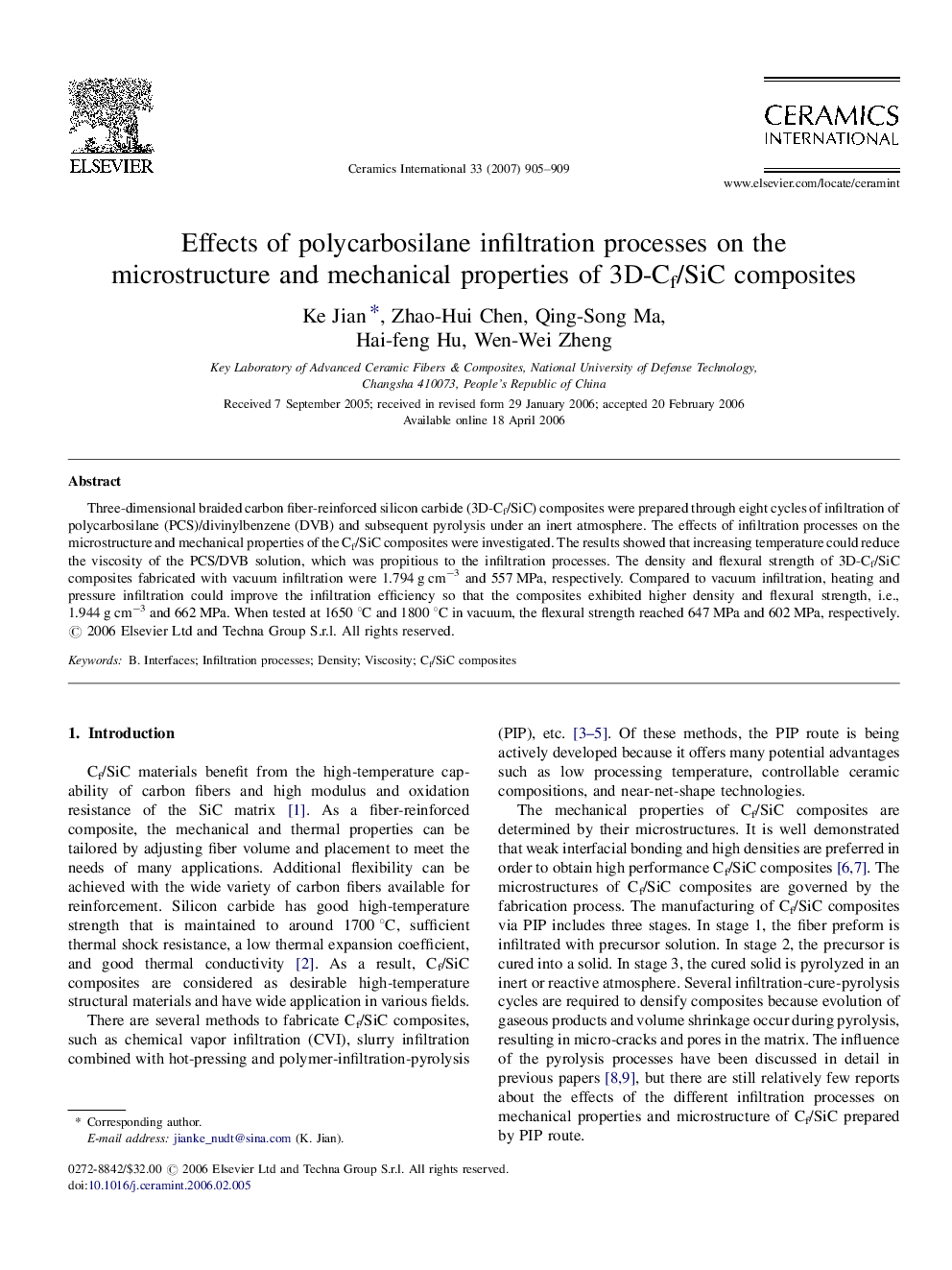| Article ID | Journal | Published Year | Pages | File Type |
|---|---|---|---|---|
| 1465553 | Ceramics International | 2007 | 5 Pages |
Three-dimensional braided carbon fiber-reinforced silicon carbide (3D-Cf/SiC) composites were prepared through eight cycles of infiltration of polycarbosilane (PCS)/divinylbenzene (DVB) and subsequent pyrolysis under an inert atmosphere. The effects of infiltration processes on the microstructure and mechanical properties of the Cf/SiC composites were investigated. The results showed that increasing temperature could reduce the viscosity of the PCS/DVB solution, which was propitious to the infiltration processes. The density and flexural strength of 3D-Cf/SiC composites fabricated with vacuum infiltration were 1.794 g cm−3 and 557 MPa, respectively. Compared to vacuum infiltration, heating and pressure infiltration could improve the infiltration efficiency so that the composites exhibited higher density and flexural strength, i.e., 1.944 g cm−3 and 662 MPa. When tested at 1650 °C and 1800 °C in vacuum, the flexural strength reached 647 MPa and 602 MPa, respectively.
